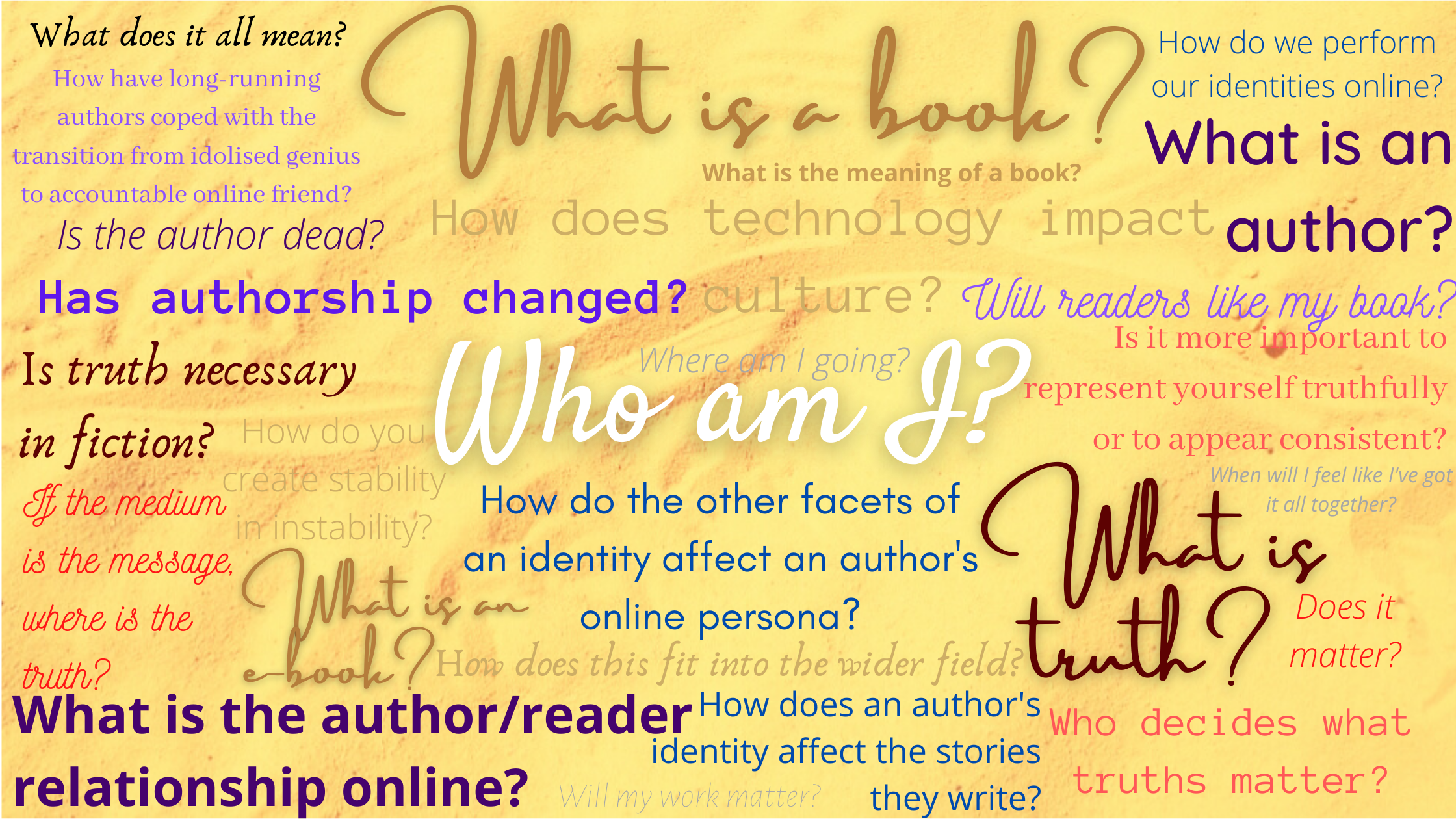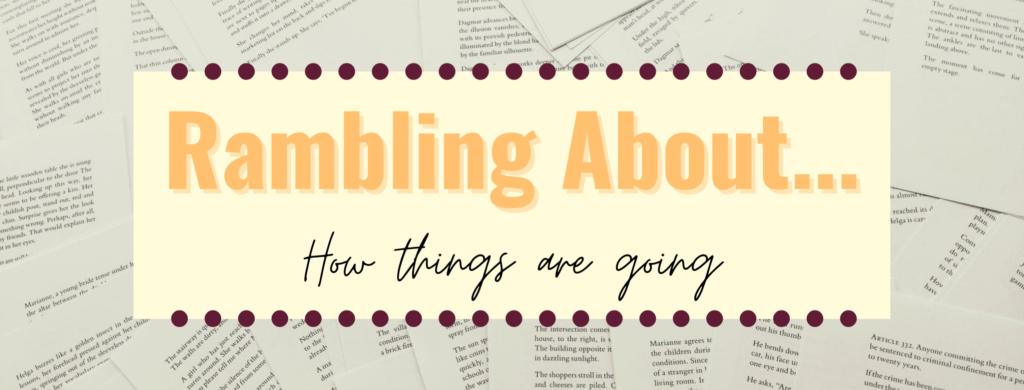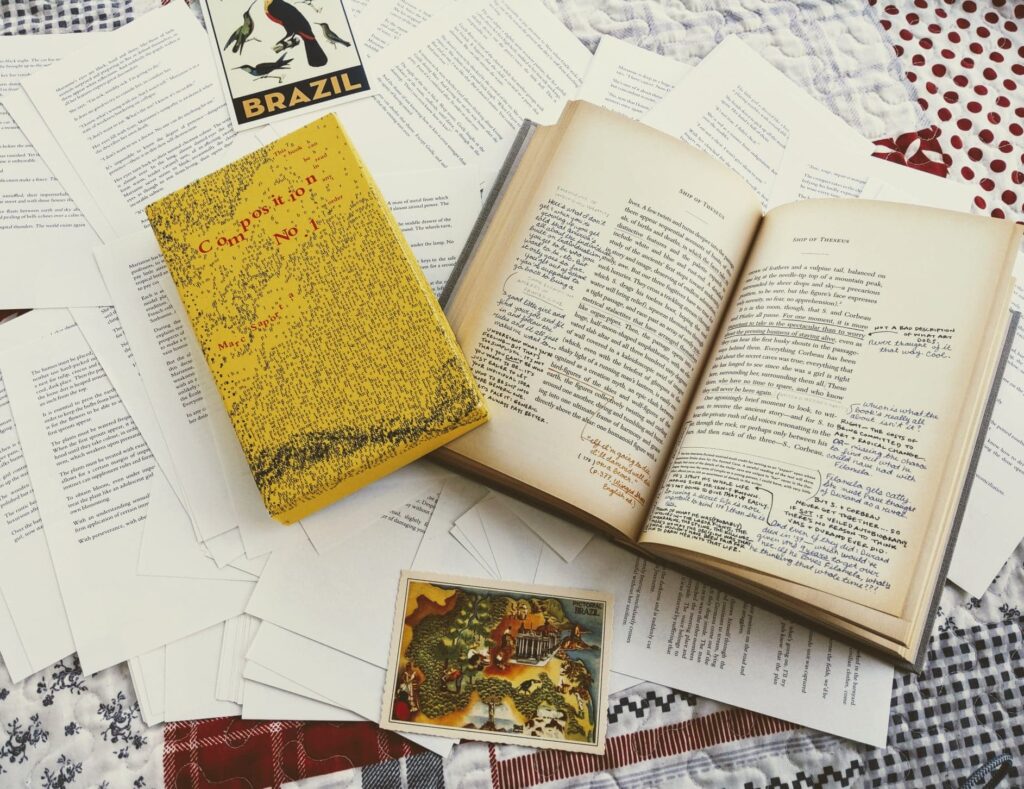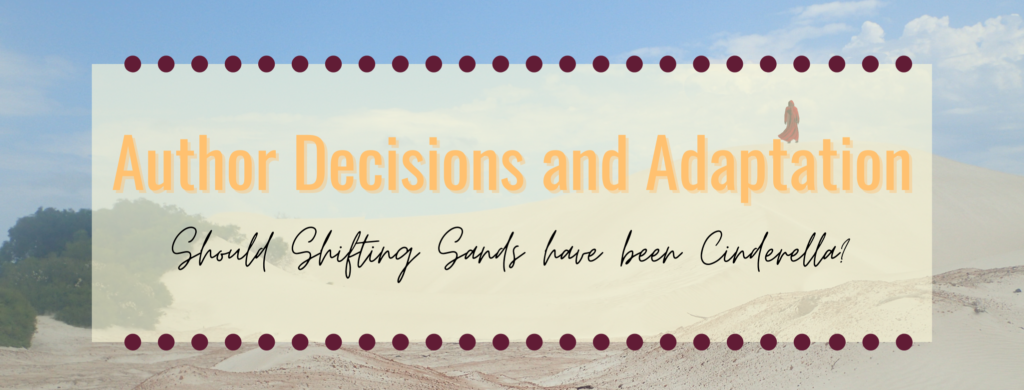Apologies for the delay in this blog post but, after some trouble with the website, I’m back! I’ve introduced me and Shifting Sands (along with an extra explanation of practice-based research!), so I guess now I’ve got to dive into the research a bit more. Here we go!
So, what is my research?
I’m not going to lie, there’s a reason I made this post the last of my introductions. Not sure if it’s an imposter’s syndrome thing, or just a Kate thing, but I always second guess the best way to describe my research. Maybe it’s because everything is still evolving. It’s changed a lot from what it was when I first started and it’ll no doubt change again. The short and snappy way I introduce it to other people (so that I don’t bore them with details) is that I’m researching authorship and online book culture, but that unfortunately does miss some important elements out. It doesn’t mention the innovation side of things, for example, or authenticity and identity construction. I guess the longer answer is that I’m looking at what happens when an e-book stops emulating the traditional book. It stops being fixed, stable from the point of publication, and instead changes each time you read it. This then breaks into a number of topics of interest that I’m still mapping out. So, whereas previous intro posts have been vaguely interview style, this is a bit more of a brain dump in headed categories. A kind of welcome-to-my-twisted-research-mind kind of deal.
Thread One: Authorship
This is probably the big overarching thing that ties everything together – the experimentation with the e-book, the online performance, and my research interests generally. Technological and cultural changes affect how authors work and how they are perceived. When stories were predominantly transmitted orally, the tale needed to be fluid so that each storyteller could adapt it to suit their audience, kind of like when your older sibling told you ghost stories and said that it had happened to someone from school. The naming of an author (such as with Homer’s Odyssey) was more figurative, providing stability and authority to the story even as it changed according to audience. Writing things down changed authorship. It created a kind of permanence – authority – and, particularly with print, the author figure started to be seen as some kind of creative genius, working alone (along with adding some financial/legal perks for the people involved). They became someone inaccessible, to be admired from afar. Some ascribed God-like reverence to them, others *cough* Barthes *cough* declared them dead.
Then, in this exceedingly quick flight over the history of authorship, things changed again, in large part due to the internet and e-books. While e-books largely replicate the familiar form of a physical book, they don’t have to stay the same. The author can update things if they decide that, for example, the character they called Katy should actually be Amanda, or they can hide texts they’re no longer willing to have represent them (I effectively saw this happen when an author got too many bad reviews once). The internet, meanwhile, connected readers to one another, enabling book-ish communities to develop that authors were eventually expected to be a part of. To engage their audience directly. To lead them. What’s to stop them tweeting out an addendum to make sure their readers are understanding their story the way they intended or, say, to make it seem like they’ve always written their books diversely and we just weren’t looking hard enough? The God-like author is no longer only accessible if you’re willing to travel up a mountain – they can speak directly to their followers through a tweet. In some ways, this gives them far more control than ever before, as they can say exactly what they intended when they wrote that the curtains were blue. But the authors aren’t the only ones with power in this scenario. The increased connection afforded by social media means that voice of the reader has been strengthened too. They can unite with others who interpret the fictional world in the same way, being able to tell the author their likes and dislikes, and raise the importance of the things that matter to them. The rules of the community are no longer just up to the author as creator, but negotiated by the people who inhabit it. This change is still relatively recent and this makes it exciting to examine. After all, I’m sure we can all think of authors who have lived through the transition from distant God to only nominal leader in a community based on the world they created. Some seem to have handled this switch better than others…
Thread Two: Truth
I’m writing an e-book that has no “true” version. It’s unstable and changeable. In writing, you usually have an imagined reader that you’re aiming for. A fictionalised audience that you can picture the responses of and account for how they may read your words. Obviously there are things you can’t account for – as I’m finding during my Shifting Sands edit, time and world events can completely change the way something is read – but you usually have some idea of what you’d like readers to find in your writing. The “truth” you intended. With an unstable e-book, it’s much harder to predict what they’ll find. I don’t know what “truth” is hidden in the many possible versions of the book. Which version is correct? Does it matter?
On top of this, there is the question of authenticity in authorship as well. Because I’m publishing and promoting Shifting Sands online, I have an author self that I’m sharing with the world. I’m trying my best to be as true as possible – it’s one of the biggest pieces of advice self-publishing authors get – but is this the true me? Already I’m finding that the way I act on Twitter is different to how I act on Facebook because they seem to be different audiences I’m speaking to, even as I try to post effectively the same content on both. And how does this author persona – this online identity I’m constructing – affect the text?
Thread Three: Identity
Winding its way through it all is this question of identity. Early on in my research, I read a paper that suggested that an innovation needs someone to take it forward for it to be successful. Someone to effectively become the figurehead. An authority. And I wondered if the reason e-books don’t make use of their more experimental potential is that there are too many levels where they need that person – they need someone to write the books, someone to produce them, and someone to buy them. I thought my focus was on authority. As time moved on, however, I realised that I was looking more broadly at what an author is now. What is the author identity when they are simultaneously the singular creative genius, the leader of their reader community, marketer, publisher, innovator…
A person wears many hats, some that they consciously construct, some that are inescapable, and others that they may not even know about. And they change these hats all the time, swapping things in and out as they move through life. In previous years, these hats may not have mattered so much in authorship. Sure, a reader may pick apart the public details of an author’s life to try and work out why the curtains are blue, but oftentimes the author was genuinely dead. All their hats were being viewed in the past tense. What did it matter, really, beyond providing an interesting possible lens through which to read the text? Now the author is present. Their identity is public. And, despite how well-constructed their author brand may be, their hats will still change. The author identity, like Shifting Sands, is unstable.
And I guess that’s the big message for this post. Everything could change. In a few months down the line, maybe I’ll end up finding another theme that seems more pertinent to what I’m writing. Or life could take me down a path I haven’t anticipated and this will change how I see things. And believe me, it makes watching other writers online very interesting, trying to pull apart whether the the they present is their brand, finding the consistencies and inconsistencies and wondering which sides are “true”.
That’s kind of where I’m up to with research. No doubt I’ll add more threads over time, prune away others, and have several identity crises along the way but, for now, I’m excited to be pushing forward with it.
So, dear reader, now that I’ve introduced myself, what about you? What are you interested in? I’ve got a lot of ideas for this blog – talking about fantasy, self-publishing, and, of course, authorship – and I can’t wait for next week when I’ll dive into fantasy, familiarity, and talking a bit about some recent Book Twitter happenings.



